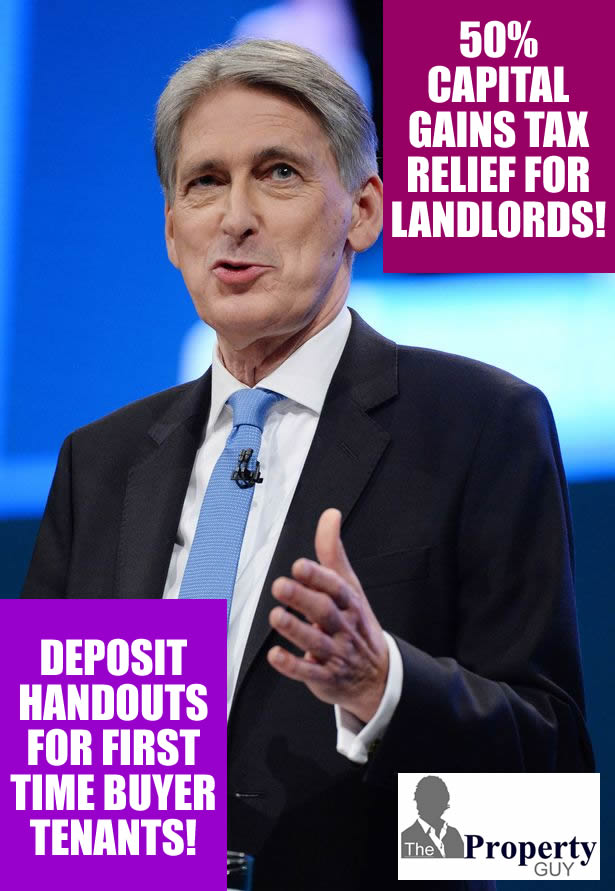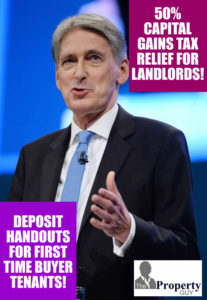Market Summary – House Prices
Value Change:
![]()

![]()


The BIG question….
Obviously, one would have to compare the cost on the same property to arrive at a fair comparison.
Here’s an example based on house prices and rental property values in Poole/Bournemouth in Dorset:
Example:
Dave owns a property worth £300,000 and he has £100,000 of equity, therefore, he has a £200,000 mortgage loan.
The mortgage loan is a capital repayment mortgage with monthly payments of £800.
So, Dave owns a £300,000 house and it costs him £800 per month to live in it.
Would it cost Dave less or more if he sold it to a landlord and rented it back?
Dave sells his house to a landlord for £300,000 and pays off the £200,000 mortgage loan. The market rent is £1000 per month (£200 more than the mortgage he used to pay). The rent is £200 MORE per month BUT Dave has £100,000 in the bank. He invests his £100,000 and earns 12% pa (£1000 per month). Dave can now pay the full rent of £1000 per month with the interest he’s earning from his £100,000.
So, Dave is now effectively living in his rented home for free. He still lives in a house worth £300,000 and isn’t having to find the £800 per month mortgage payments.
Roughly, £550 of his mortgage payments were paying off his £200,000 loan, therefore, this wasn’t actually a cost as such, however, he is still £250 per month better off.
Although Dave has £250 extra in his pocket every month, he is losing out on the capital growth (how much his own property may have increased by). If his property didn’t increase by more than 1% that year, then he would be in no worse position by renting. He also has the flexibility of living in different properties in various locations; perhaps worldwide, which might be attractive if his work can be done from a phone and a laptop.
There are always going to be pro’s and con’s but I think Dave’s example demonstrates that renting doesn’t look too bad at all!
Thoughts?
David Giles – Founder of EMBARQ
#property #renting #buying #poole #bournemouth #christchurch #dorset #houseprices #rentingvsbuying #mortgages #firsttimebuyer


The Chancellor will be delivering the 2018 Budget on Monday 29th October (tomorrow) and I for one eagerly await the announcements.
I’m particularly interested in the Tories consideration of introducing a 100% CGT (capital gains tax) relief for those selling rental properties to their tenants. As long as the tenant has been in the property for 3 years or longer, 50% of the saving would remain with the landlord and the other 50% would be used as part of the tenants purchasing deposit. As an advocate, promoter and facilitator of enabling home-ownership for tenants, I’m really hoping that this proposal comes to fruition.
The current rules state that landlords who sell a rental property are liable to pay capital gains tax on any profits they make. If this amount is within the basic income tax band they’ll pay 18% or 28% on any amount above the basic tax rate.
With the typical gain per property being circa £15,000, this example would gift a first-time-tenant-buyer with £7,500. This figure will range significantly case by case and it’s expected that this average figure is likely to be around three times this amount in locations like London. Some landlords won’t have seen any equity growth, therefore, won’t have any gains to contribute to this proposed scheme. Seasoned landlords on the other hand that have benefited from decades of house price growth; and/or that have made shrewd acquisitions, could be subject to hefty a relief, which could become a significant windfall for both themselves and their tenants.
As with all changes and proposals to alter tax/legislation, I’ve given this scheme some in-depth thought, in particular to those landlords with mighty gains that have already extracted their profits through remortgaging. These particular landlords could face difficulties in passing over the obligated tenant-buyers deposit contribution because if they’ve already spent or reinvested the money and don’t have the required portion to pass over to the tenant-buyer, the scheme could be flawed.
I’m not totally convinced that this proposed capital gains tax relief will incentivise enough landlords to sell their properties to their tenants. Firstly, buy-to-let is a long-term investment and those that have to sell are probably less likely to have decent gains to make this a viable scheme. Secondly, more than 50% of landlords are unencumbered (have mortgage-free assets) therefore, they are not affected by the phased section 24 changes to mortgage interest rate relief, thus, no pressure to sell-off rental stock like those that are highly geared and/or with higher interest rates to service. I think a more efficient, win-win and “catch all” strategy that would make the merits of this scheme more viable, would be to refund the stamp duty levy for additional properties and establish a tax relief on the rental income for the provision of longer tenancies. The negative of this revised proposal could perhaps incentivise too many landlords to dis-invest from the rental investment arena, thus decreasing the supply of rented homes. This could leave many people in limbo; perhaps increase homelessness, and/or prolong the burden to parents to provide somewhere to live. With the current average age of first-time buyers already at 30 years old, parents may need to consider buying a home with two annexes, one for their own parents and one for their kids!
Feel free to discuss.
____________________________________________________________________
Contact EMBARQ for any consultancy and/or real estate services.
Office HQ: 01202 930 930
Email: HQ@EMBARQ.CO.UK
DAVID GILES (The Property Guy), Founder of EMBARQ, Property Investment Consultant, Letting Agent, Public Speaker, Landlord, Proud Dad, Rubbish Golfer, Ten Pin Bowling Legend, Author of The Property Guy Blog
#Budget #Budget2018 #UK #Brexit #Economics #Deal #NoDeal